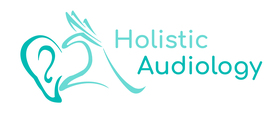
Living with tinnitus can be an isolating and distressing experience. Tinnitus, like hearing loss is invisible, and you cannot tell just by looking at someone. Tinnitus is a condition characterised by the perception of hearing noises in the ears (or in the head) when there is no external sound source.
1 in 3 Australians experience tinnitus. Tinnitus can affect day to day living and negatively impact one’s mental health and wellbeing. 45% of people with tinnitus experience anxiety, and 33% experience major depression. Tinnitus affects both adults and children.
Tinnitus Awareness Week is hosted on the first full week of February. This year, it runs from 5th to 11th of February, 2024.
What is TINNITUS?
SYMPTOM
The perceived tinnitus sounds are very individual and specific to each person with tinnitus. The auditory experience can vary significantly in volume from faint to loud, in tonal quality and pitch; such as, ringing, buzzing, hissing, whistling, humming, roaring, whooshing, pulsing, clicking or other types of noises.
Tinnitus can be temporary; such as, after attending a concert, or chronic, with 15-20% of people reporting constant tinnitus. Tinnitus can affect one or both ears, and despite often being heard in the ears, it is generated by the brain. Studies indicate that tinnitus is a condition that involves both auditory and non-auditory areas of the brain.
CAUSES
Tinnitus cause is multi-factorial. It is not a disease, but a symptom of underlying issues; such as, hearing loss, exposure to loud noises, ear pathology, acoustic trauma, neck or jaw issues, tumours, head injury, medications, circulatory system disorders, even earwax build-up. Most commonly, tinnitus initially develops due to damage to the auditory system.
DIAGNOSIS
A Tinnitus Assessment should incorporate:
- specialised questionnaires (with normed data) designed to delve into the nature of perceived symptoms, the types of disturbance on daily function, and the severity of impacts on one’s wellbeing,
- extended-range hearing assessment (beyond standard hearing tests) is required to adequately ascertain the presence of auditory damage from which tinnitus could have developed,
- psychoacoustic tinnitus measures to identify the auditory source of the perceived tinnitus.
At Holistic Audiology, our specialised Tinnitus Assessment also includes:
- exploring/evaluating co-morbidities that influence tinnitus,
- identifying the triggers for tinnitus,
- testing the brain’s capacity to desensitise/habituate to the perceived tinnitus sounds,
- evaluation of the possible benefits of sound therapy, and/or other treatments
- customised tinnitus management plan for wellbeing, for each individual
- tinnitus education and counselling, as appropriate for the individual
- medical referrals and psychosocial support, as necessary for the individual
Identifying the contributing factors is the key to navigating the appropriate course of therapeutic action. It is important to know that with tinnitus, there is no ‘one size fits all’ treatment; and its presentation can also change depending on your health circumstances. So, please seek assistance if you or someone you know is ever struggling with tinnitus.
TREATMENT
For those who experience problematic tinnitus, management to improve wellbeing is key. A range of tinnitus treatment options are available, dependent on one’s individual needs; such as, tinnitus management, targeted sound therapy, hearing devices, tinnitus education and counselling, and psychotherapy, as appropriate.
Addressing any comorbidities identified as potential contributing factors, is also imperative in ameliorating the effects of tinnitus.
PREVENTION
A common cause of auditory trauma/damage is exposure to loud sounds. Even transient loud noises can cause damage, even if no hearing issues is perceived. Experiencing of temporary noises in the ears and/or muffled hearing after attending, e.g. concerts, nightclubs, pubs are signs that your hearing system has been traumatised. If you frequent noisy environments or use noisy equipment, it is vital that you wear ear protection, to protect your auditory system. With hearing, prevention is the only cure.
Do you know someone with Tinnitus?
Let’s commit to supporting people living with tinnitus by talking about Tinnitus with your friends and family, including the impact it can have on the individuals who suffer from it and what can be done about it.
Contact Holistic Audiology to learn more or call 0481 577 105.
If you have tinnitus, a good place to start is to have a specialised Tinnitus Assessment by a qualified hearing healthcare professional. There are a range of options available to help manage and ameliorate the impacts of tinnitus.
No one should suffer in silence. Contact Holistic Audiology to book your tinnitus consultation today or call 0481 577 105.
